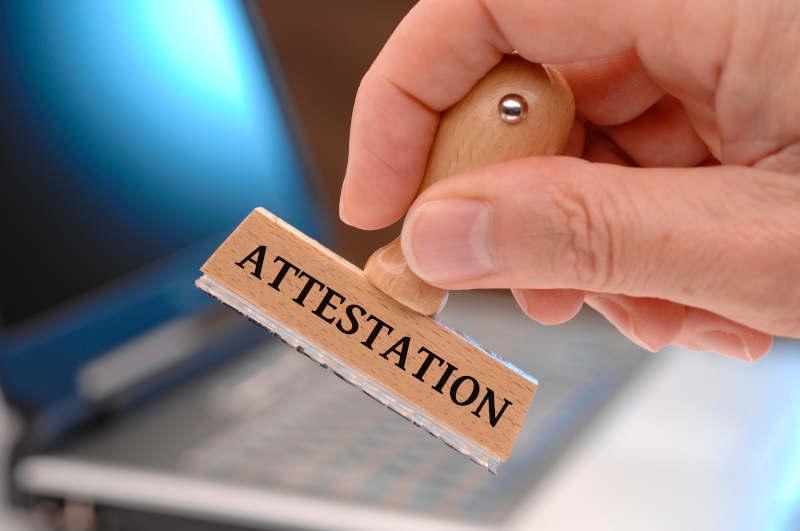In today’s globalized world, many individuals aspire to advance their careers abroad, seeking better opportunities, higher education, or a change in their professional landscape. However, when pursuing career prospects in foreign countries, one critical aspect often overlooked is the role of certificate attestation. In this comprehensive article, we will explore how Indian certificate attestation plays a pivotal role in advancing your career abroad, ensuring that your credentials are recognized and valued in your chosen destination.
Understanding Certificate Attestation
Certificate attestation is a process that involves verifying and authenticating the validity of official documents, such as educational certificates, personal documents, and professional licenses, to ensure their acceptance and recognition in a foreign country. It is a crucial step for individuals planning to study, work, or settle in another nation.
The attestation process is necessary to confirm the legitimacy of your documents and establish their credibility in the eyes of foreign authorities and institutions. Without proper attestation, your certificates may not be acknowledged, hindering your career prospects and personal aspirations abroad.
Certificate attestation serves as a bridge between your home country’s education or legal system and the one you wish to enter. It ensures that your qualifications, achievements, and personal information are accurately represented, allowing you to pursue your career goals with confidence.
The Significance of Certificate Attestation
The significance of certificate attestation in advancing your career abroad cannot be overstated. It provides several key benefits that facilitate your journey towards professional success in a foreign land.
1. Legal Recognition
Foreign governments and institutions require assurance that the documents you present are genuine and hold legal validity in your home country. Certificate attestation provides this assurance, making it possible for your educational and personal records to be legally recognized abroad.
For instance, if you hold a bachelor’s degree from your home country and intend to pursue further education in a foreign university, the host country’s educational authorities will need to verify the authenticity of your degree. Certificate attestation serves as proof that your degree is genuine and accredited, allowing you to enroll in advanced academic programs.
2. Employment Opportunities
When seeking employment opportunities abroad, you will often encounter employers who demand authenticated copies of your educational certificates and work experience. Certificate attestation ensures that your qualifications are accepted by prospective employers, opening doors to a wide range of job opportunities.
Employers are more likely to trust candidates with attested documents, as it demonstrates your commitment to transparency and credibility. Whether you are a recent graduate or an experienced professional, certificate attestation can significantly enhance your chances of landing your dream job in a foreign country.
In the following sections, we will delve deeper into the types of certificate attestation and the specific processes involved, shedding light on the comprehensive…
Types of Certificate Attestation
Certificate attestation is a multifaceted process that varies depending on the type of documents involved. Broadly, it can be categorized into two main types: educational certificate attestation and non-educational certificate attestation. Each type serves a distinct purpose and is essential for different stages of your career advancement abroad.
Educational Certificate Attestation
Educational certificate attestation is primarily concerned with verifying the authenticity of academic documents, including school certificates, diplomas, degrees, and transcripts. This type of attestation is critical for individuals planning to pursue higher education or vocational courses in foreign institutions.
The process of educational certificate attestation typically involves the following steps:
Step 1: Verification by Authorities
Before your educational certificates can be attested for international use, they must undergo a thorough verification process in your home country. This verification is carried out by the relevant educational authorities, such as the school board or university registrar.
During this stage, your educational institution confirms the legitimacy of your academic records, including your marks, grades, and degree completion. Once the verification is complete, the certificates are considered ready for attestation.
Step 2: State Attestation
After local verification, your educational certificates must be attested by the state government in your home country. This step is crucial for establishing the legal validity of your documents at the national level.
State attestation is typically performed by the Home Department or General Administration Department of your state government. Once the state attestation is obtained, your educational certificates are ready for attestation by the embassy or consulate of the foreign country where you plan to study or work.
In the next section, we will explore the processes involved in non-educational certificate attestation, which is essential for individuals seeking employment or settling abroad.
Non-Educational Certificate Attestation
While educational certificate attestation focuses on academic qualifications, non-educational certificate attestation is concerned with verifying personal and professional documents. These documents include birth certificates, marriage certificates, employment letters, experience certificates, and various legal records.
The process of non-educational certificate attestation involves a series of steps similar to educational attestation, albeit with variations based on the type of document. Here is an overview of the key steps:
Step 1: Verification by Authorities
Just like with educational certificates, non-educational documents must first be verified by the relevant authorities in your home country. This verification process ensures the accuracy and legitimacy of the information contained in the documents.
For example, if you are planning to get married abroad and need to attest your marriage certificate, the local authorities in your home country will verify the authenticity of the marriage certificate before it can be attested for international use.
Step 2: State Attestation
Once the documents pass the verification stage, they must be attested by the state government in your home country. This step establishes the legal validity of the documents within your country.
Depending on the type of document, the state attestation may be performed by different government departments. For instance, birth certificates may be attested by the Health Department, while marriage certificates may require attestation from the Home Department. These state-level attestations are prerequisites for further attestation by foreign embassies or consulates.
Now that we’ve discussed the types and initial steps of certificate attestation, let’s delve into the importance of this process when pursuing a career abroad.
The Importance of Certificate Attestation in Foreign Countries
In foreign countries, the recognition and acceptance of your documents often hinge on their attestation status. Whether you are applying for a job, seeking admission to an educational institution, or fulfilling legal requirements, certificate attestation plays a pivotal role in ensuring the smooth progression of your career abroad.
Legal Recognition
Foreign governments and institutions require attested documents to confirm their authenticity and legal validity. Without proper attestation, your certificates may not be considered valid, leading to potential roadblocks in your career or personal endeavors.
For instance, if you plan to work in a foreign country, your prospective employer will likely request attested copies of your educational and professional certificates to validate your qualifications. Without these attested documents, your chances of securing the job may be jeopardized, as employers may question the legitimacy of your credentials.
Employment Opportunities
Certificate attestation significantly enhances your prospects in the job market of your chosen foreign destination. Employers value candidates with authenticated documents because it demonstrates your commitment to transparency and credibility.
When competing for job opportunities in a foreign country, attested certificates can give you a competitive edge. Your attested qualifications assure employers that you meet the necessary educational and professional standards, making you a desirable candidate for various positions.
In the next section, we will explore the specific benefits of certificate attestation, highlighting its impact on your career advancement abroad.
Benefits of Certificate Attestation
Certificate attestation offers a multitude of benefits that can propel your career forward when pursuing opportunities abroad. These benefits extend beyond legal recognition and encompass global acceptance and enhanced career growth prospects.
Global Acceptance
One of the primary advantages of certificate attestation is the global acceptance of your documents. When your certificates are attested, they become universally recognized and respected, regardless of where you choose to work or study.
This global acceptance is particularly advantageous when you’re applying for jobs or educational programs in countries with stringent document verification processes. Your attested certificates eliminate doubts and streamline the application process, making it easier for you to navigate foreign bureaucratic requirements.
Career Growth Abroad
Certificate attestation paves the way for significant career growth opportunities in your chosen foreign destination. Whether you’re a recent graduate looking to kickstart your career or an experienced professional seeking new challenges, attested certificates open doors to a wide range of possibilities.
In highly competitive job markets, having attested qualifications can be a game-changer. Employers are more likely to trust candidates with authenticated documents, as it eliminates concerns about fraudulent or misrepresented credentials. This trust can lead to quicker job placements and faster career progression.



